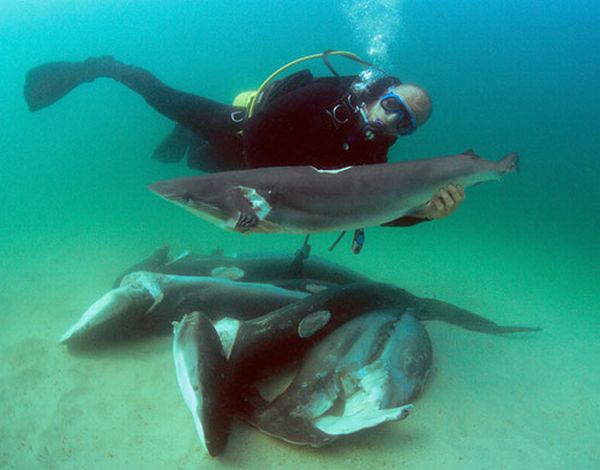1. Our most ancient species are endangered.
Sharks have existed since before the dinosaurs and pre-date humans by hundreds of millions of years. Once kings of natural selection, sharks are now facing extinction due to finning. Shark populations are extremely vulnerable because they take up to 20 years to reach sexual maturity and produce few young. The current demand for fins makes it impossible to restore populations to previous levels.
Since 1972, the number of Blacktip, Tiger, Bull, Dusky, and Smooth Hammerhead sharks has fallen by over 90%. Already, 18-20 species of sharks are listed as endangered by the International Union for the Conservation of Nature (IUCN).
